To secure Mosul, Iraq army makes desert push with US help
A division’s commander says the fight is not an easy one
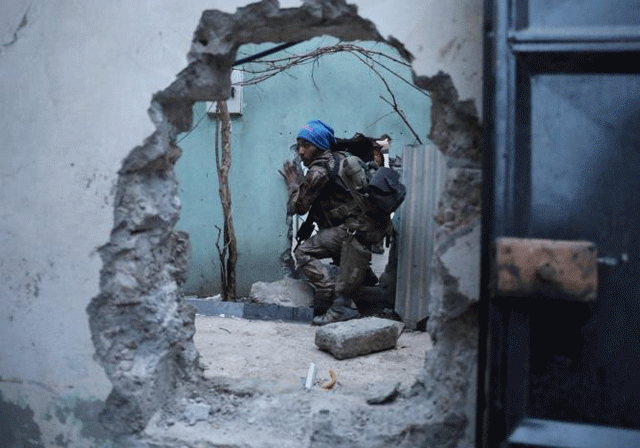
An Iraqi Special Forces soldier moves through a hole as he searches for Islamic State fighters in Mosul, Iraq February 27, 2017. PHOTO: REUTERS
On a dusty ridge west of Iraq's second city, the army's ninth Division is advancing through exposed territory in a push to sever the road between west Mosul and the IS-held town of Tal Afar.
The main route from Tal Afar to IS-held territory in Syria has already been cut, but severing the road from the town to Mosul will prevent the militants from resupplying or retreating as they come under pressure from Iraqi forces advancing from the south.
Iraqi forces push deeper into western Mosul as civilians flee
The fight is not an easy one, says the division's commander, Staff Lieutenant General Qassem al-Maliki.
"The progress is slow, honestly," he said.
"The problem is one of terrain, not the enemy. It seems easy, but it's exposed and there are no roads. Everywhere we move the bulldozers have to go ahead to make a path for us."
As he spoke, army forces illustrated his point as they moved across the plain below.
The seemingly endless convoy of tan tanks and armoured vehicles crawled slowly across the open desert behind a bulldozer, throwing up a massive plume of dust.
The ninth Division's position in Talul al Atshan is one of the highest points in Nineveh province, and would ordinarily provide them with a view across Mosul and the plain around it.
But on Monday, the view gradually disappeared behind a thick haze of grey-black smoke rising from fires set by IS to stymie attack helicopters and warplanes.
350,000 children trapped in west Mosul: Save the Children
The tactic rendered the landscape post-apocalyptic, with only the highest points in Mosul – a white water tank, the tip of an electricity pylon – still visible above the smog.
"They want to hide from us by burning oil and creating this smoke," said Maliki.
On a red plastic chair perched on the ridge edge sat Brigadier General Abdulrazzaq, working two walkie-talkies to coordinate strikes from helicopters overhead.
Sporting a blue baseball cap and aviator sunglasses, he smiled mischievously as he received calls and offered encouragement to pilots.
"Get on with it you hero, give me a good result," he urged one pilot after calling in coordinates for a strike on a group of suspected IS fighters.
He declined to give his family name, concerned like many in the Iraqi security forces about the safety of relatives.
Iraqi Kurdish TV reporter killed in Mosul
A call came in on the smaller of his walkie-talkies: "There's a group of fighters behind the convoy, we need them dealt with," the voice says.
"Okay, okay," he replied, picking up his second device and relaying coordinates before watching to observe the attack helicopter fire.
"Give me the result, you hero," he said.
"Seven dead, all fighters," came the reply.
Maliki said his forces had advanced some 13 kilometres (eight miles) in the past six days, capturing 10 villages and a power plant from IS as they moved.
He estimated it would take another few days to reach and secure the Tal Afar-Mosul road.
Close at hand were a team of US troops, part of the "advice and assist" unit operating alongside the ninth Division.
"Wherever I go they're with me, there's continuous coordination," said Maliki, adding Iraqi personnel were also embedded with the US-led coalition against IS to guide strikes.
US Lieutenant Colonel James Browning said his forces had been assisting Iraqi troops for nearly two months, including during the earlier phase of the operation to capture east Mosul.
"Our job here is to ensure that the 9th Division commander has the full capability of the coalition at his side," he said.
"Everything from intelligence to a lethal capability as well as an observation platform, that way he can see the battlefield a little bit better...understanding where his forces are at and understanding where the battlefield is at."
The Pentagon says around 450 US military advisers are currently assisting Iraqi partners in the fight for Mosul, performing roles including providing guidance and calling in air strikes.
But US forces have been involved in firefights with the militants, a spokesman acknowledged this month.
Browning said the operation faced challenges including "gaps in intelligence" but praised the Iraqi army's "vigour and... willingness to fight."
"The steel that they have within them...it's incredible," he said.

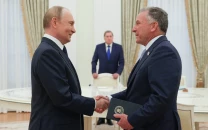
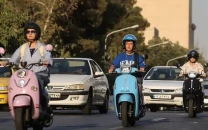
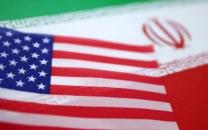
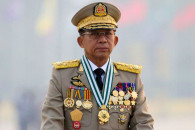
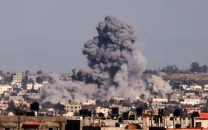
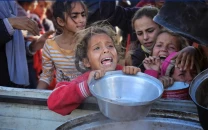












COMMENTS
Comments are moderated and generally will be posted if they are on-topic and not abusive.
For more information, please see our Comments FAQ